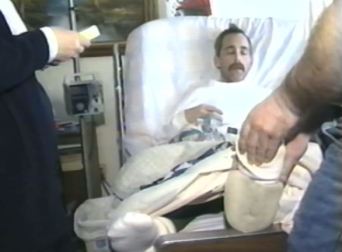
Robb’s partner, Kevin, gives him a foot massage as the nurse prepares a morphine drip during Robb’s final weeks.
Robb Dussliere had a secret during the year that I documented his life with AIDS. I helped him keep the secret from the public.
Robb had a partner named Kevin. In our first meetings, as we discussed the documentary of his life, Robb asked me to keep Kevin’s name and image out of the series.
Kevin was in the Army National Guard, and in those days he could be discharged if he were “outed” as gay. Another factor was his family. Kevin’s parents did not accept his sexual orientation. He believed that they would not only feel anger but also humiliation if he were publicly identified, and he wanted to save them — and himself — from that sort of backlash.
As a journalist, this posed a dilemma, but I did not wrestle with it for long. The main story, after all, was Robb’s life with AIDS and his mission to educate the community on how to avoid the disease. In 1995, the concept of two men living together and being partners triggered a lot of anger. Kevin’s role in Robb’s life could distract from the more important message.
Last year, when this blog was launched to commemorate the 20th anniversary of Robb’s Life, I contacted Kevin, and we decided that for his parents’ sake, we would continue to conceal his complete identity and use only his first name.
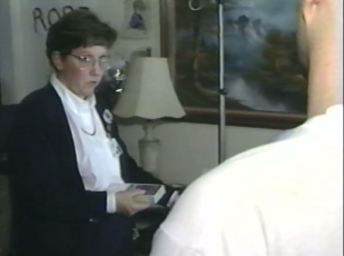
Nurse Pam explains the morphine delivery system to Kevin.
Through most of the series, Kevin was not around during the video shoots. He showed up in one story when Robb was renovating the shelter for homeless AIDS clients, but I shot Kevin from behind so his face was not visible. As Robb was dying (watch the video on Chapter 42 of this blog), you can see Kevin’s hand massaging Robb’s foot as Robb lay in pain, waiting for morphine. In that story, the nurse, Pam, is showing Kevin how to set the machine for Robb’s morphine drip.
I only saw Kevin once after Robb’s funeral, the day they dedicated “Robb’s House,” part of the DeLaCerda House. But during the past 20 years, I have wondered what was happening behind the scenes, if the brave young man on TV was going through emotional agony when the camera wasn’t rolling. Perhaps I wanted to be reassured that Robb had been as brave off-camera as he was when I was around. Kevin could answer those questions.
Kevin said he and Robb met at a euchre tournament hosted by JR’s, a local night club that catered to gays.
“We chatted a couple of times and he asked me out,” Kevin recalled. “I was 26.”
Robb told him on the first date that he was HIV-positive.
“I had just come out,” Kevin said. “He was the first person I had dated. I was scared. Here was a very nice guy, I’m looking for love, but he’s HIV-positive.”
Robb had been an executive in the company that owns the Village Inn restaurants. When the company discovered Robb was HIV-positive he was let go. Robb filed a lawsuit against the company that was settled out of court. By the time he met Kevin, Robb was living on welfare.
Despite the health issue, they embarked on a relationship that Kevin describes as “eye-opening,” a relationship that he credits with changing him forever.
“It may have saved my life,” Kevin said. “I learned so much through Robb. He helped me grow; helped me take charge of my own life.”
By the time they met, Robb had already lived for a decade with HIV. He had passed through the fear and anger, and he had seen what AIDS did to two of his previous partners. Robb had cared for them. He was well aware of the road ahead.
“When we met, Robb felt he was living on borrowed time already,” Kevin said. “He had such a positive outlook. He wasn’t scared. He was always able to give that sense of humor, and made others relax and get through it.”
Kevin admits that Robb’s humor may have been a coping mechanism, but it was not an act.
“His overall mood was never scared or down or worried,” Kevin said. “He was very straight-forward.”
I was very glad to hear Kevin say this. In the 20 years since Robb died, I have considered him the bravest person I ever met. His calm demeanor as his life was ending may have had an impact on me when I lost a lung and was near death in 2009. Since that time, I have lived with a shortened life expectancy, and Robb’s image has come to mind countless times. I have found that I, too, have a calmness about the possibility of dying, and when I have revisited the video of Robb discussing his illness in such an honest, fearless way, the feeling of a bond has grown stronger. So it was true — the Robb I saw through my camera lens was the real person.
Still, as Kevin and I both got a little emotional during our recent phone conversation, I felt bad for bringing up the memories and emotions and making him relive it. He put my mind at ease.
“I like talking about Robb,” Kevin said. “He was a happy, positive person. That’s my memory.”
Kevin remained HIV-negative. In the next couple of weeks, you will read a few more of his comments about Robb’s final days, but I am happy to report that Kevin found love again and is living very happily in Texas.
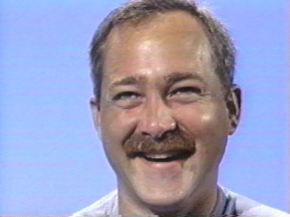 I admitted to Kevin that I felt some guilt during the past two decades. During the taping of Robb’s Life, I was a single parent with two teenage daughters living at home, working as news director of a TV station, doing Robb’s Life as an “extra” activity beyond my normal work hours, and trying to maintain a social life, dating a woman I had become engaged to in February 1996. I never took the time to take Robb and Kevin out to dinner or to invite them to my house. Part of my reasoning at the time, besides being so busy, was the notion that as a journalist, even though I was emotionally involved in Robb’s story, I still needed to keep a slight bit of objectivity and detached professionalism. I felt that the rules of journalism dictated that I shouldn’t get too close.
I admitted to Kevin that I felt some guilt during the past two decades. During the taping of Robb’s Life, I was a single parent with two teenage daughters living at home, working as news director of a TV station, doing Robb’s Life as an “extra” activity beyond my normal work hours, and trying to maintain a social life, dating a woman I had become engaged to in February 1996. I never took the time to take Robb and Kevin out to dinner or to invite them to my house. Part of my reasoning at the time, besides being so busy, was the notion that as a journalist, even though I was emotionally involved in Robb’s story, I still needed to keep a slight bit of objectivity and detached professionalism. I felt that the rules of journalism dictated that I shouldn’t get too close.
By the time I realized Robb’s life was ending, and the opportunity to really be his friend was slipping away, Robb became too sick to leave the house. It left me with a regret that I have felt all these years.
Kevin responded to this admission by giving me a precious gift that left me in tears.
“It never came up,” he said. “Robb thought the world of you.”
Our conversation ended with Kevin saying that Robb embodied the old expression, “To know him is to love him.”
“Everyone who met him loved him,” Kevin said. “I was lucky enough to be the one he loved back. He was the most amazing person I have ever known — the most giving, most positive person I have ever known.”
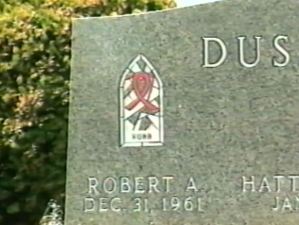
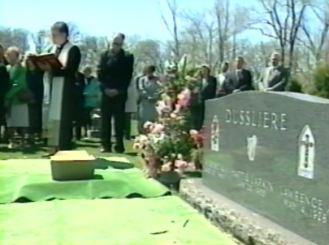

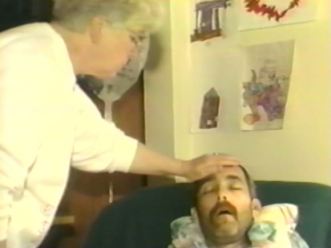
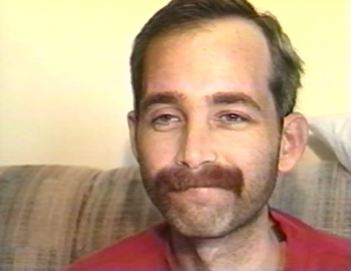
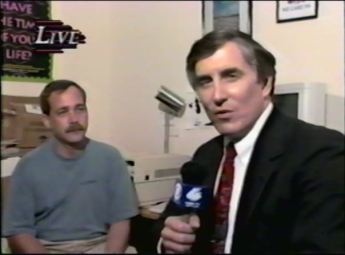
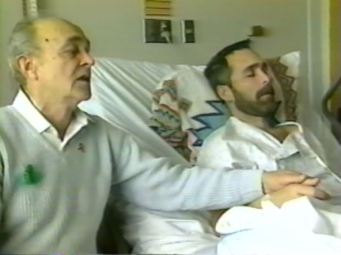
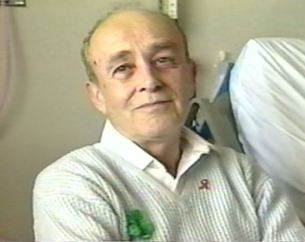
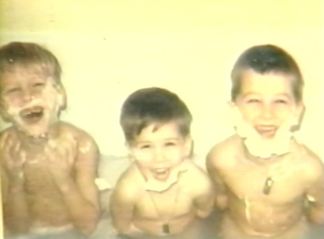


 I admitted to Kevin that I felt some guilt during the past two decades. During the taping of Robb’s Life, I was a single parent with two teenage daughters living at home, working as news director of a TV station, doing Robb’s Life as an “extra” activity beyond my normal work hours, and trying to maintain a social life, dating a woman I had become engaged to in February 1996. I never took the time to take Robb and Kevin out to dinner or to invite them to my house. Part of my reasoning at the time, besides being so busy, was the notion that as a journalist, even though I was emotionally involved in Robb’s story, I still needed to keep a slight bit of objectivity and detached professionalism. I felt that the rules of journalism dictated that I shouldn’t get too close.
I admitted to Kevin that I felt some guilt during the past two decades. During the taping of Robb’s Life, I was a single parent with two teenage daughters living at home, working as news director of a TV station, doing Robb’s Life as an “extra” activity beyond my normal work hours, and trying to maintain a social life, dating a woman I had become engaged to in February 1996. I never took the time to take Robb and Kevin out to dinner or to invite them to my house. Part of my reasoning at the time, besides being so busy, was the notion that as a journalist, even though I was emotionally involved in Robb’s story, I still needed to keep a slight bit of objectivity and detached professionalism. I felt that the rules of journalism dictated that I shouldn’t get too close.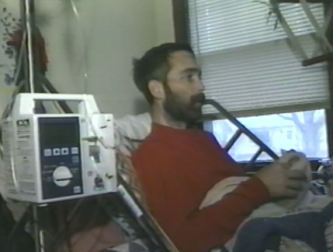 Twenty years ago this week, Robb was running out of time, in terrible pain, and wanting to tie up a few loose ends while he was able to do so. Father Donald Levitt, who was at St. Mary’s in East Moline at the time, came to Robb’s house to plan the funeral service.
Twenty years ago this week, Robb was running out of time, in terrible pain, and wanting to tie up a few loose ends while he was able to do so. Father Donald Levitt, who was at St. Mary’s in East Moline at the time, came to Robb’s house to plan the funeral service.